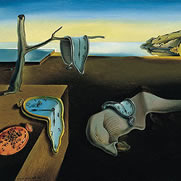Expereince
I have an independent private practice in the centre of Edinburgh where I work with individuals and couples. Prior to that I was an associate partner in First Psychology for many years and also worked in Cross Reach’s Post Natal Depression Services in Edinburgh and Mindspace in Perth.
I design and teach a diverse range of psychotherapy and clinical supervision courses nationally and internationally. I was a core tutor at Physis Scotland for psychotherapy training and clinical supervision, and a guest trainer in numerous training institutes. Prior to that I worked as an independent transformation manager where I facilitated large scale change in technology and finance organisations.
I have worked with a wide range of issues such as relationships, depression, anxiety, stress, anger, self harm, motivation, bereavement and loss.I am also experienced in working with difficulties arising from life changes, in particular where questions of direction and meaning arise.
I have also worked with many couples resolving counter productive communication and intimacy issues in particular where mixed culture and backgrounds are involved. I have a keen interest and experience working with issues around making and having children including fertility, pregnancy, birth and parenting.
Puplications
- Stilman, R. (2025) "Who are we? We’re who we are." Applying a group lens to working with couples. Transactional Analysis Jounral (In Print)
- Stilman, R. (2025). The Interplay Between Our Secret Garden and Our Tribe: Identity Process in Context. Transactional Analysis Journal, 55(1), 77–91. https://doi.org/10.1080/03621537.2024.2438523
- Haynes, E. & Stilman, R. (2025) Exploring the dialectics of survival and potential: Protocol. In Transactional Analysis of Motherhood and Disturbances in the Maternal: from Preconception to Human Being (pg. 67-84). Routledge. https://doi.org/10.4324/9781003365822
- Stilman, R. (2024) The Significance of Our Relationship with Technology. Transactional Analysis Podcast, S8 E10. https://tapodcast.com/s8-e10-ronen-stilman-the-significance-of-our-relationship-with-technology/
- Stilman, R. (2024) Virtual Reality and Screen Relations in Clinical Practice – exploring co-creation, inclusivity and exclusivity. European Journal of Psychotherapy & Counselling, 26:1-2, 67-80, https://doi.org/10.1080/13642537.2024.2312287
- Aldridge, B. & Stilman, R. (2024) Unmasking Neurodiversity: Revisiting the Relationship Between Core Self and Sense of Self to Examine Common Neurodivergent Script Decisions. Transactional Analysis Journal, 54:1, 47-62, https://doi.org/10.1080/03621537.2024.2286576
- Stilman, R. (2023) Transcending the Edge of Connectedness: Screen Relations in Practice. Transactional Analysis Journal, 53:2, 176-185, https://doi.org/10.1080/03621537.2023.2184149
- Stilman, R. (2022) Attached to Technology - exploring identity and human relating in virtual and corporeal world. Transactional Analysis Journal, 52:2, 93-105. https://doi.org/10.1080/03621537.2022.2036484
- Stilman, R. (2022) Screen Relations in Practice – A Reflection on Rupture and Repair. International Journal of Psychotherapy, 26(1):53-60 https://www.ijp.org.uk/docs/IJP_2022_26_1_Online_R.pdf
- Stilman, R. (2022) Triple Helix Model – bridging the operational and developmental frame of supervision. The Transactional Analyst, 12(2):43-46.
- Stilman, R. (2020) UKATA’s OMR 2020– What is that all about? The Transactional Analyst, 10(4):3-4.
- Stilman, R. (2020) Attached to Technology. New Psychotherapist. Vol 75, Autumn issue: 48-50.
- Stilman, R. (2020) Systemic maps – exploring multiple dimensions of narrative. The Transactional Analyst, 10(3):48-52.
- Stilman, R. (2020) No Man is an Island. Counselling Directory. https://www.counselling-directory.org.uk/memberarticles/no-man-is-an-island-1
- Stilman, R. (2020) i-Self – accounting for our digital identity. The Transactional Analyst. 10(1): 8-10.
- Stilman, R. (2017) A question of identity. The Transactional Analyst, 7(3):41-42.
- Stilman, R. (2015) Catching the Emotional Bullet. Strokes (Autumn edition):3-5.
- Stilman, R. (2009) Post Natal Depression and the implicit client: an inclusive approach. International Journal of Psychotherapy, 13(2):44-52.




